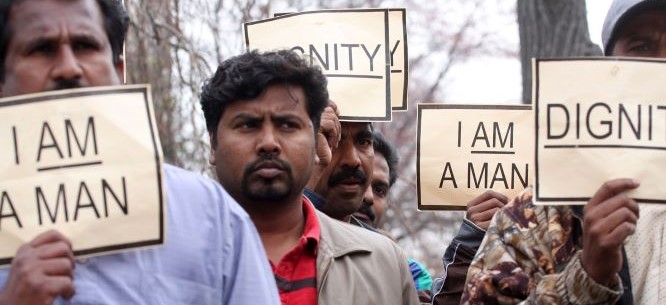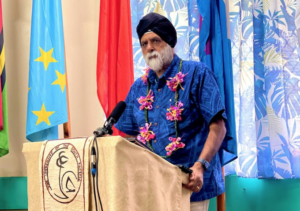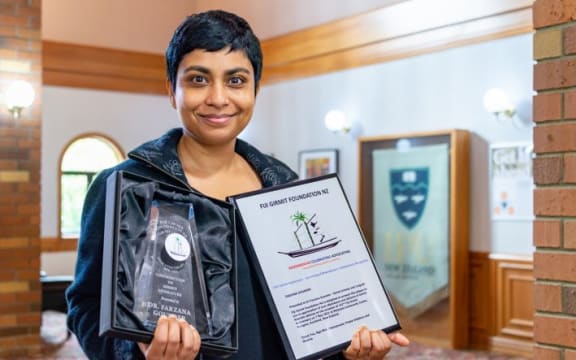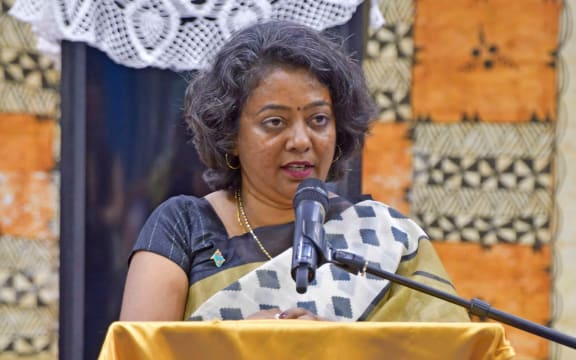The Education-Migration Nexus
Humans have always been on the move. The UN International Organization for Migration (IOM) conceptualises a migrant as a person who moves away from his or her place of usual residence, whether within a country or across an international border, temporarily or permanently, and for a variety of reasons. Some people migrate in search of work, economic opportunities, to join family, or to study. Others migrate to escape conflict, persecution, terrorism and/or human rights violations. Migration can also occur in response to the harmful effects of climate change, natural disasters and/or other environmental factors. Children migrate accompanied or unaccompanied, according to UNESCO’s 2013 Report on Social Inclusion of Internal Migrants, which estimated that there were 15 million seasonal migrant children in India who encounter many obstacles, including a limited access to education, amongst many others. Although education is undeniably one of the foundations of children’s well-being, child migrants often suffer from the lack of it.
India, being a diverse nation, has witnessed successive waves of migration, resulting in an increasing number of children and adolescents. Internal migration in this country has significantly surged due to population pressure and scarcity of resources. As per the latest Census conducted in 2011, the count of domestic migrants in India stood at 450 million. Across India, 20% of internal migrants were children in 2011, i.e., 92.95 million, according to UNICEF. Hence, the exodus of child migrants was notably higher than the growth of the children population during the same period, i.e., 18.5% between 1991-2001 and 6.3% between 2001-2011. Since then, there is a lack of current information regarding migrant children. In 2021, the Supreme Court urged India’s governments to furnish details about migrant children. Nevertheless, there has been negligible advancement since then, and the issue remains unresolved. Based on the Economic and Political Weekly (2022), migration discussions often overlook children from migrant families in India with low income. The lives of children were under greater vulnerability of missing out on the most developmental aspect, i.e., education. Studies indicate that migrant children in India between the age group of 6-18-years-old are more exposed to child labour, child trafficking and ceased educational opportunities. Around 22.1% of migrant children in this age were not enrolled in any educational institution in 2011.
Addressing Unequal Access to Education for Migrant Children in India
In 2015, the 2030 Agenda for Sustainable Development was adopted by the United Nations General Assembly. Sustainable Development Goal 4 (SDG 4) is aimed at addressing the global education crisis, which affects millions of children and young people around the world who do not have access to quality education. SDG 4 has several targets, including the following: (1) ensuring that all girls and boys have access to quality early childhood development, care and pre-primary education; (2) ensuring that all girls and boys complete free, equitable and quality primary and secondary education (3) increasing the number of adults who have relevant skills for employment, decent jobs and entrepreneurship and (4) securing equal access to affordable and quality technical, vocational and tertiary education. SDG 4 also aims to eliminate gender disparities in education and ensure equal access for all, including people with disabilities, indigenous peoples and refugees. Achieving SDG 4 is critical for migrant children’s access to education, as it is a fundamental human right and a key driver of economic growth, social development and environmental sustainability.
In the past five years, India has provided an array of solutions for migrant children. The enactment of the Right to Education Act of 2009 (RTE), passed by the Indian Parliament in 2009 and came into force on April 1, 2010, provides for free and compulsory education for all children between the ages of 6 and 14-years-old. The RTE Act mandates that every child in this age group has the right to education in a neighbourhood school and prohibits discrimination on the grounds of gender, caste, religion and disability. The RTE Act has been instrumental in expanding access to education in India and improving the quality of education in government schools. However, there are still several challenges in its implementation, including inadequate infrastructure, shortage of teachers and a lack of monitoring and accountability. Moreover, Sarva Shiksha Abhiyan (SSA) and Integrated Child Development Services (ICDS) are two major government initiatives in India that promote education and child development, particularly for marginalised and vulnerable populations, including migrant children. Under Poshan 2.0, the government is currently prioritizing the provision of Anganwadi services to all, including migrant families, meaning the arrangement of a network of centers for the holistic development of children. For instance, SSA has developed special modules on migration and education, providing training to teachers and education administrators on addressing the needs of migrant children in the country. Overall, SSA and ICDS are crucial in ensuring that migrant children have access to education and development opportunities, significantly contributing to improving the education outcomes of migrant children in India.
Challenges in Delivering Education to Migrant Children in India
Despite the attention conveyed to the issue, the education of migrant children in India remains a very difficult issue of paramount importance to India’s development. It is compromised due to several reasons, such as the frequent mobilities, socio-economic backgrounds and several exclusionary school experiences of these children. Indeed, children are subjected to hazardous travel between villages and work sites. India Today writes that the villages of Bihar, Madhya Pradesh, Rajasthan and Uttar Pradesh to Punjab, Haryana, Gujarat and Delhi, which are mostly migration hubs, migrant children are not accepted in schools or the larger community, and are constantly viewed as outsiders. Consequently, according to the Global Monitoring Report, 80% of children of seasonal workers in India do not have access to education. Furthermore, because of the nature of their parents’ labour patterns, these children are difficult to trace and are, therefore, easily left out of the standard systemic interventions of the education system. Children often end up dropping out of school or struggle with learning gaps due to prolonged absence, which ultimately affects children’s psychosocial and cognitive abilities, depriving them from having a correct exposure to socialisation. Migrant children lose the protection of their social networks back home and their well-being is often sidelined as they migrate. As a matter of fact, rooted away from their homes and villages, the first thing that migrants lose is their identity as citizens and all of their basic entitlements, including access to schooling facilities, free services in public health centres. They are also prevented from participating in panchayat (village council) activities, and are sometimes unable to cast their vote or participate in the census, as these usually take place during the first half of the year and coincide with the migration period.
Cultural differences and language barriers become a disadvantage for migrant children, hindering their educational attainment. Ernst Georg Ravenstein’s laws on migration (1885) deals with the impact of rural-urban labour migration on the education of children. As migration has wide-ranging impacts on children whether they are left behind by one or both migrating parents, move with their parents, are born abroad, or migrate alone, the educational performance of children is highly compromised when migrating. Due to this process, many children suffer from depression, abandonment, low self-esteem and several behavioural disorders due to the unavailability of education (Virupaksha et al., 2014). There is a dire need to focus on and develop a mixed-methods research agenda, referring to the use of both quantitative and qualitative methods for child migration to understand their plight in a better way and provide solutions. Hence, there is a need to make a regular assessment of the number of child migrants in India in order for them to be protected from any form of vulnerability, such as kidnapping, trafficking, etc. Eventually, we would think that research, policy and advocacy efforts undertaken on behalf of migrant children in India would help in raising awareness on the issue concerning their access to education.
Nevertheless, these have commonly focused on those living in situations that are dangerous, abusive and/or exploitative, either inherently or because of their young age. They are often represented as passive victims of these crimes, perpetuating this idea of the innocent and at-risk child who can be easily instrumentalized. In consequence, they start to reflect dominant notions of trauma and victimhood. It would be a matter of investigating the issue with children rather than on them.
Conclusion
Migrant children are deprived of education, which is a major threat to their social well-being. The conditions under which mobility takes place are often unsafe and risky, putting migrant children, especially unaccompanied and separated children, at an exponential risk of economic or sexual exploitation, abuse, neglect and/or violence as well as being prevented from education. Policy responses to protect and support migrant children are often limited. While children on the move have become a recognised part of today’s global and mixed migration flows, they are still largely discreet in debates on migration, child protection and empowerment. It is necessary to identify mechanisms on how to enhance migrant childrens’ capabilities by providing a better quality of education and preventing them from every form of exploitation, inequalities, discrimination and/or marginalisation.
The effects of migration on children are diverse, and there are numerous concerns that require attention. It’s crucial to support the families of migrant workers who live and work in precarious conditions. To ensure the well-being of their children, policy perspectives must be re-evaluated and a greater emphasis must be placed on policy implementation. Despite the availability of educational opportunities, many migrant children do not pursue formal education, making it necessary to consider the overall social well-being of these families, including their living conditions, in order to empower their children. Policies aimed at improving educational conditions of migrant children migrants must be tailored to their special needs. Unfortunately, migrant children are somehow ignored in the educational attainment process, for sometimes migration is inevitable and an important process to develop India.
References
Crépeau, F. (2013). Children on the Move. Switzerland: International Organization for Migration (IOM)
Desk, I. T. W. (2018, December 11). How seasonal migration of Indians is destroying educational opportunities for children. India Today. Retrieved June 24, 2022, from https://www.indiatoday.in/education-today/featurephilia/story/how-seasonal-migration-of-i ndians-is-destroying-educational-opportunities-for-children-1406369-2018-12-11
Ensor, Marisa & Gozdziak, Elzbieta. (2010). Migrant Children: At the Crossroads of Vulnerability and Resiliency. Palgrave MacMillan
Pandey, P. (2022). Always on the move: The troubling landscape of the right to education for migrant children in India. [Online] Times of India Blog. Available at: https://timesofindia.indiatimes.com/blogs/voices/always-on-the-move-the-troubling-lands cape-of-the-right-to-education-for-migrant-children-in-india/
Peddie, F. and Liu, J. (2021) Education and Migration in an Asian Context. Germany: Springer Singapore
Tumbe, C. (2018). India Moving: A History of Migration. India: Penguin Random House India Private Limited
United Nations. (n.d.). Migration. United Nations. Retrieved June 24, 2022, from https://www.un.org/en/global-issues/migration
Virupaksha, H. G., Kumar, A., & Nirmala, B. P. (2014, July). Migration and Mental Health: An Interface. Journal of natural science, biology, and medicine. Retrieved March 16, 2023, from https://www.ncbi.nlm.nih.gov/pmc/articles/PMC4121889/
Understanding child migration in India – unicef.org. (2020). Retrieved March 20, 2023, from https://www.unicef.org/india/media/3416/file
What is right to education act (RTE act)? Times of India Blog. (2021, May 15). Retrieved March 18, 2023, from https://timesofindia.indiatimes.com/readersblog/igoravsharma/what-is-right-to-education-a ct-rte-act-32034/
Internal migration in India grows, but inter-state movements remain low. World Bank Blogs. (2019). Retrieved March 18, 2023, from https://blogs.worldbank.org/peoplemove/internal-migration-india-grows-inter-state-movements-remain-low#%3A~%3Atext%3DThe%20number%20of%20internal%20migrants%2C2001%20to%2037%25%20in%25
The laws of migration – Ravenstein – 1885 – Journal of the statistical (1885). Retrieved March 17, 2023, from https://rss.onlinelibrary.wiley.com/doi/10.2307/2979181
Vikaspedia domains. Vikaspedia. (n.d.). Retrieved March 20, 2023, from https://vikaspedia.in/social-welfare/women-and-child-development/child-development-1/in tegrated-child-development-scheme
Unesdoc.unesco.org. (2021). Retrieved March 20, 2023, from https://unesdoc.unesco.org/ark:/48223/pf0000379875.locale=en
United Nations. (n.d.). Goal 4 | Department of Economic and Social Affairs. United Nations. Retrieved March 20, 2023, from https://sdgs.un.org/goals/goal4
Home : Women and child development department, govt. of Maharashtra, India. (n.d.). Retrieved March 20, 2023, from https://womenchild.maharashtra.gov.in/content/
Roy, E. (2022, June 19). Centre focuses on access to Anganwadi services for migrants. The Indian Express. Retrieved March 20, 2023, fromhttps://indianexpress.com/article/india/centre-focuses-on-access-to-anganwadi-services-for-migrants-7977880/
Always on the move: The troubling landscape of the right to education for migrant children in India. Times of India Blog. (2021, April 19). Retrieved March 20, 2023, from https://timesofindia.indiatimes.com/blogs/voices/always-on-the-move-the-troubling-landsc ape-of-the-right-to-education-for-migrant-children-in-india/
A case for functional social protection portability to address vulnerabilities of migration-affected children. Economic and Political Weekly. (2022, November 10). Retrieved March 20, 2023, from https://www.epw.in/engage/article/case-functional-social-protection-portability
Bashir, S. (2023, February 11). How education remains out of reach for India’s Invisible Migrant Children. Scroll.in. Retrieved March 20, 2023, from https://scroll.in/article/1041923/how-education-remains-out-of-reach-for-indias-invisible-mi grant-children
Home. International Organization for Migration. (n.d.). Retrieved March 20, 2023, from https://www.iom.int/
This post was originally published on LSE Human Rights.




























